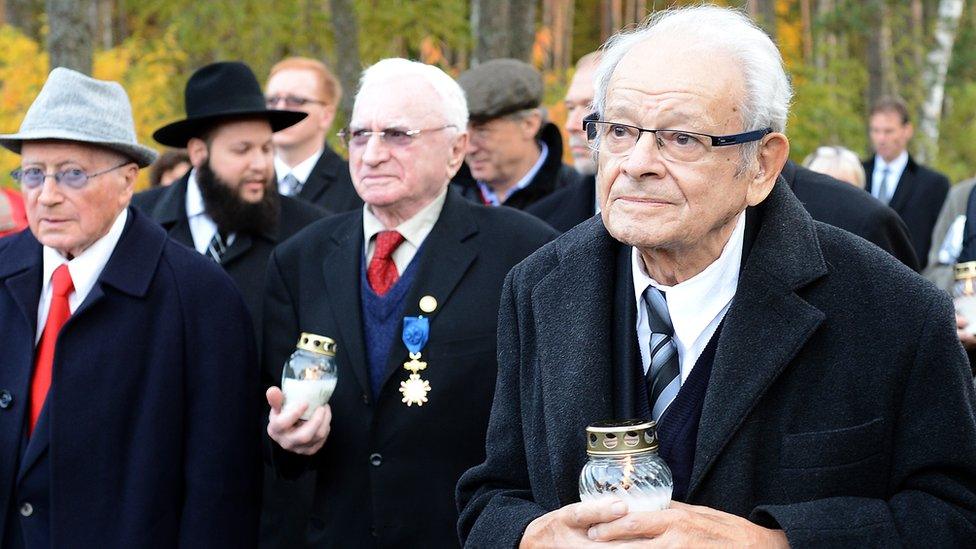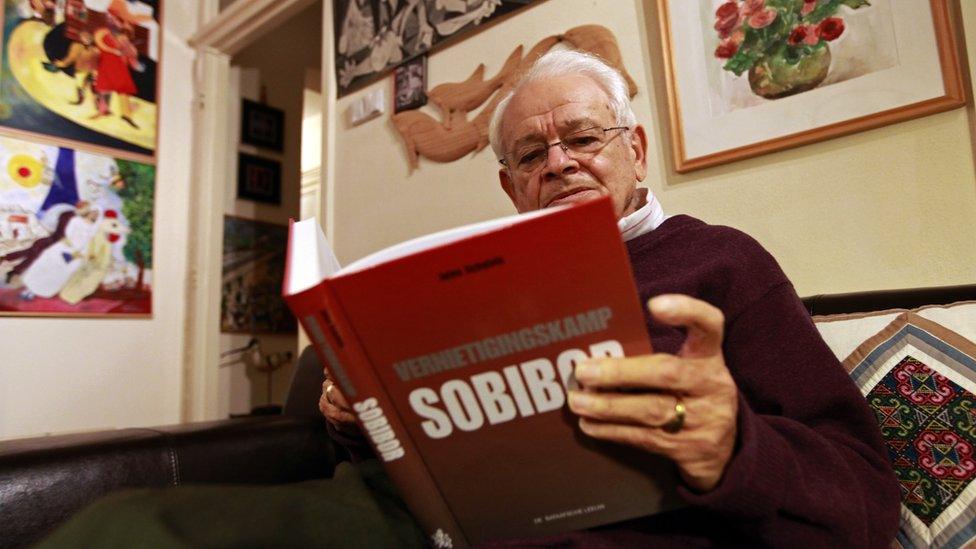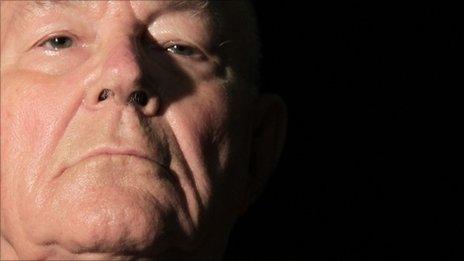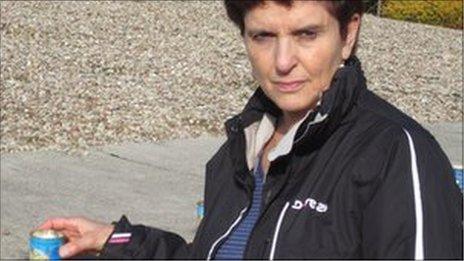Sobibor Nazi death camp survivor Schelvis dies at 95
- Published

Jules Schelvis (R) worked tirelessly to ensure that the victims of Sobibor were not forgotten
The last Dutch survivor of the Nazi extermination camp at Sobibor, Jules Schelvis, has died at his home aged 95.
After World War Two he worked to document what happened at Sobibor, one of three secret death camps built by the Nazis in occupied eastern Poland.
About 250,000 people, mainly Jews, were murdered there from 1942-43. More than 34,000 were from the Netherlands.
Jules Schelvis lost most of his family in the war and survived six more camps until he was finally freed in 1945.
He was a co-plaintiff in the trial of Sobibor guard John Demjanjuk, who was found guilty in 2011 of being an accessory to the murder of 28,000 Jews.

Jules Schelvis said he had documented what had happened at Sobibor for everyone murdered there
The Nazis tried to cover up the existence of Sobibor and little was known about it as so few people had survived. Schelvis was one of only 18 Dutch people to come back from Sobibor.
He died at his home in Amstelveen, near Amsterdam.
Schelvis began writing about the camp in the 1980s when he retired and set up the Sobibor Foundation , external.
He was transported to Sobibor aged 22 from the Westerbork camp in June 1943, along with his wife and in-laws who were murdered within hours.
Schelvis himself was later sent to a labour camp after speaking to an SS officer using German he had learned at school.
Initially he believed he was the only Dutch survivor but eventually found another 17 people who had returned home.
Asked why he had devoted years of his life to documenting the horrors of Sobibor, he once said: "I did it for everyone who was murdered there. First of all for my wife and the family and everyone else."
- Published12 May 2011

- Published12 May 2011
